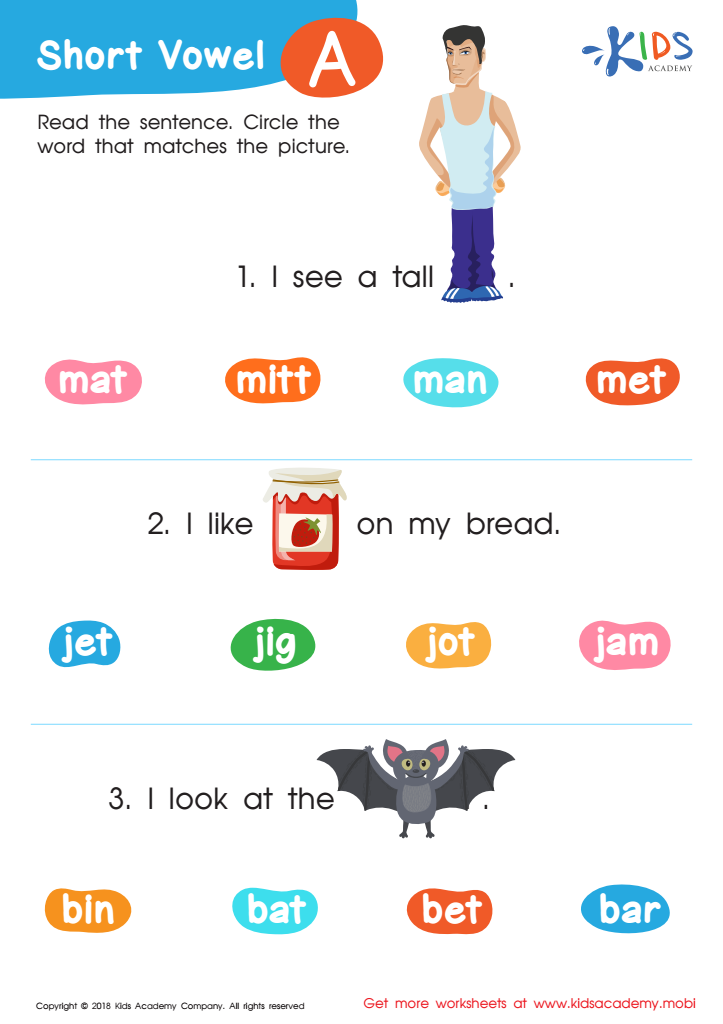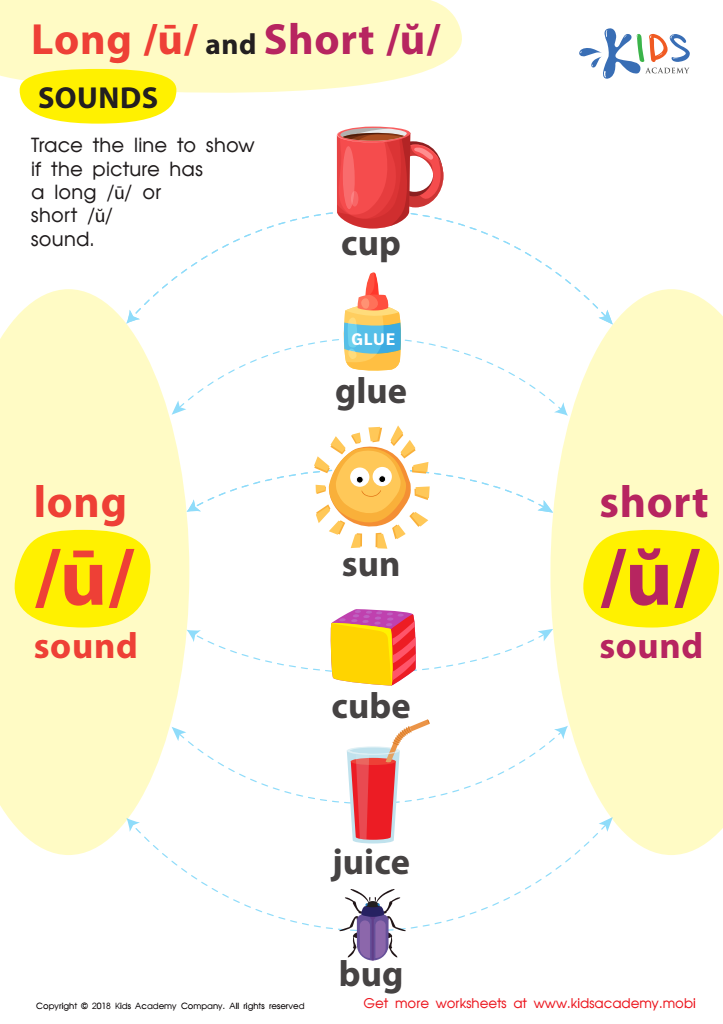Vowel Recognition Normal Letter Recognition Worksheets for Ages 3-8
4 filtered results
-
From - To
Enhance your child’s early literacy skills with our engaging vowel recognition and normal letter recognition worksheets tailored for ages 3-8. Designed to make learning fun, these educational resources from Kids Academy focus on recognizing, identifying, and practicing vowels and letters through colorful and interactive activities. Perfect for young learners, the worksheets help improve reading readiness, phonemic awareness, and build foundational skills essential for future literacy success. Ideal for both classroom use and at-home practice, help your child progress with confidence and enthusiasm in their alphabet journey using our expertly designed educational materials.


Short Vowel /a/ Worksheet


Short Vowels /e/, /i/, and /u/ Worksheet


Reading: Long U and Short U Sounds Worksheet


Long Vowel Maze /o/ and /i/ Worksheet
Vowel recognition and normal letter recognition are fundamental components in the literacy development of young children aged 3-8. Vowels, comprising around 40% of English letters, form the crux of decoding words and understanding phonemes, which are the smallest units of sound in a language. Ensuring that children can recognize vowels early on aids in their ability to phonetically segment and blend sounds for word formation. This foundational skill sets the stage for fluent reading, which is crucial for academic success.
Recognizing all letters of the alphabet, or normal letter recognition, equips children with the necessary building blocks for reading, spelling, and writing. At these formative ages, where cognitive flexibility is high, consistent exposure to letter shapes, names, and sounds fosters neural pathways conducive to literacy. Strong early literacy skills are linked to enhanced communication abilities, better comprehension, and a broader vocabulary.
For parents and teachers, investing time in vowel and letter recognition activities can lead to improved academic trajectories as these basic skills underpin more complex literacy tasks. Interactive and engaging exercises, such as alphabet games, flashcards, and read-aloud sessions, fortify these essential skills. Such proactive engagement not only fosters a love for reading but also lays a robust foundation for lifelong learning.
 Assign to My Students
Assign to My Students
















